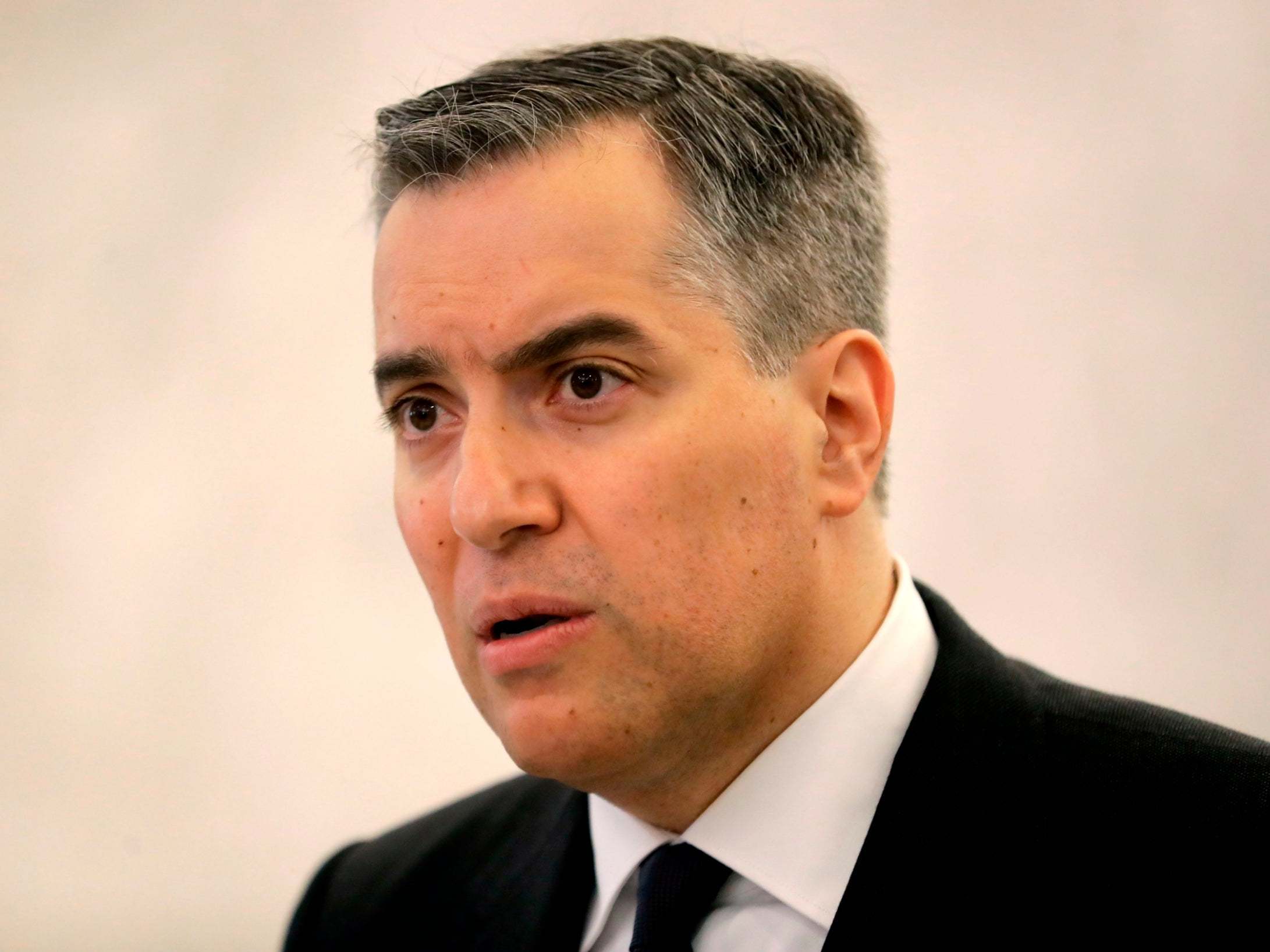Mustapha Adib: Lebanon chooses little-known diplomat as PM after devastating blast topples government
Beirut’s ambassador to Germany vows to form cabinet of experts in record time to push through much-needed reforms

Lebanon’s ambassador to Germany is set to become the country’s new prime minister after the entire cabinet resigned in the wake of this month’s disastrous blast in Beirut that killed at least 190 people.
Shortly after he was chosen, Mustapha Adib vowed to form a government in record time in order to implement crucial reforms needed to regain the trust of the Lebanese and international community.
The decision to make him prime minister-designate was approved by a majority of Lebanese lawmakers and president Michel Aoun just hours before French president Emmanuel Macron was due to land in the country for his second visit in less than a month.
Ahead of his trip, Mr Macron warned that Lebanon, a former French protectorate, was on the verge of civil war and promised to force the country’s fractious leaders to tackle corruption and push through much-needed reforms.
Senior Lebanese officials said that Mr Macron’s mediation had been essential in securing an agreement on Mr Adib as a candidate, after a week-long deadlock.
Lebanon’s ruling parties had been under mounting international pressure to form a new government and make major political changes to unlock millions of dollars of aid pledged to help rebuild Beirut and the country after the 4 August blast and amid an unprecedented financial collapse.
Both crises are anchored in years of corruption and mismanagement.
Mr Adib, a little-known diplomat, was born in the northern city of Tripoli and is a Sunni Muslim, making him eligible to become prime minister under Lebanon’s sectarian power-sharing system.
On Monday, he promised to form a cabinet of experts to work with the parliament to “put the country on track of improvement and to end the dangerous financial, economic and social drainage”.
“The opportunity in front of our country is narrow, and the mission that I accepted is based on all political groups knowing that. The government should be formed very quickly,” he added.
He was first named as a potential option on Sunday when he was nominated by three former prime ministers including Saad Hariri, who heads Lebanon’s biggest Sunni Muslim party the Future Movement.
Mr Adib was also supported by the powerful Iran-backed Shia group Hezbollah, the Progressive Socialist Party led by prominent Druze politician Walid Jumblatt, as well as the Christian Free Patriotic Movement, which was founded by President Aoun.
The Lebanese Forces, a Christian group, was the only major party not to support him. It backed another ambassador, Nawaf Salam, a choice strongly opposed by Hezbollah.
With a PhD in law and political science, Mr Adib started his career as a university lecturer and later professor before working closely with several cabinets and then being appointed as Lebanon’s ambassador to Germany in 2013.
He served as an adviser, and is closely linked, to billionaire and former prime minister Najib Mikati, who was among the three ex-PMs to nominate him.
Mr Mikati, named by Forbes in 2015 as Lebanon’s richest man, was indicted in October on charges of making illicit gains from a subsided housing programme. He vehemently denies the charges.
President Macron, who is set to meet Lebanese politicians in Beirut on Tuesday, apparently helped broker the deal, making a series of phone calls to Lebanese leaders at the weekend that were vital to securing the consensus on Mr Adib.
A senior Lebanese politician told Reuters “it was the pressure of his calls to everyone, the pressure of his coming to Lebanon, the pressure of everyone not wanting to upset him”.
The last time a government was formed it took several months of political wrangling until Hassan Diab was named as prime minister. Even then Mr Diab did not enjoy the same cross-party support that Mr Adib has.
Mr Diab quit his role on 10 August, six days after the port blast which killed at least 190 people and injured 6,500 more. The explosion, probably caused by thousands of tons of poorly stored ammonium nitrate catching fire, left millions of dollars of destruction, damaging 50,000 homes, nine hospitals and 178 schools.
Subscribe to Independent Premium to bookmark this article
Want to bookmark your favourite articles and stories to read or reference later? Start your Independent Premium subscription today.

Join our commenting forum
Join thought-provoking conversations, follow other Independent readers and see their replies